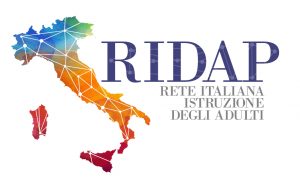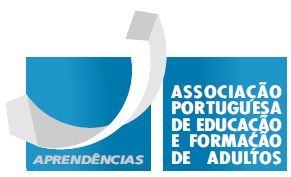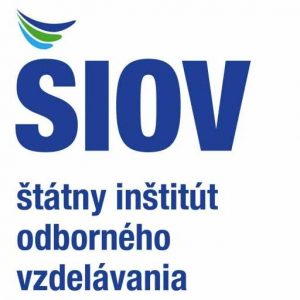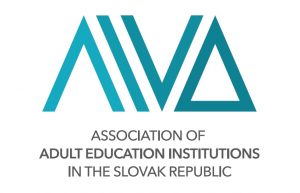A bridge to a new beginning …
of linguistic, writing, artistic and civic-cultural skills
Teaching/Learning of basic and transversal skills
Brief description of the main purposes and contents
This is a “composite” project aimed at expanding and supporting the training offer of this CPIA, through specific actions aimed at enhancing learning and key skills.
The design and implementation of didactic-training courses involved the use of innovative teaching methodologies, aimed at enhancing active and cooperative learning, as well as the active involvement of adult and young adult students, Italian-speaking and alloglots, in experiential situations.
The first didactic proposal aimed at strengthening and reinforcing the command of the oral and written Italian language to describe, clarify, inform, explain and express concepts, feelings, ideas.
The module was created in synchronous DDA and made it possible to modulate strategies and methodologies thanks to the use of ITC.
The second proposal was intended to enhance and consolidate writing skills, to be achieved with awareness knowing how to master the language in any communication levels, through the recognition and study of the main text types (also in digital format), starting from ‘analysis of some examples of use and arriving at the construction of texts.
The third workshop proposal stimulated creativity as a personal path of each, exchange of ideas, learning and social integration through theatrical techniques combined with moments of confrontation and dialogue.
Finally, the fourth laboratory for learning Italian as L2 concerned a set of differentiated activities to be carried out outdoors, organized in thematic itineraries, taking students around the city, to explore the language and put into practice, in authentic contexts, the linguistic contents learned in the classroom.
Criteria to which the identified good practice corresponds
Relevance to one or more of the 4 identified themes – involvement of adults in training, guidance, teaching and learning of basic skills, validation of non-formal and informal skills.
Reasons why the project / program is considered a “good practice”, in light of the criteria identified above
The Project, carried out in synergy with the institutional, cultural, social and economic realities of the territory, is configured as a bearer of good practices, by virtue of the realization of objectives such as:
- enhancement of key competences for lifelong learning, in particular by consolidating the basic levels;
- development of motivation to study with innovative and constructive methodologies;
- promotion of the relational dimension and the well-being of the student.
Through the original creation of flexible and adaptable modules to the educational needs of our users, we have been able to translate into reality school training courses aimed at developing social skills, sharing and cooperation, in compliance with the chosen objectives and in experiential or immersive contexts, even outdoors.
In our environment, socially rich and varied, the Project was carried out by activating forms of teaching-learning always placed in realistic context and integrating cultural and linguistic exchanges, to encourage inclusion, participation and active involvement of the student population with possible replicability.
Implementing Organization/Entity
CPIA-Potenza
Main target group
Disadvantaged adults lacking of education and/or skills.
Source of funding
Public funds (national, regional …).
Which stakeholders were involved in the implementation of the project / program? How did they get involved?
In the realization of the Project, all the Reception Centers and Associations that collaborate regularly with this CPIA during the school year were involved. Specifically, for the organization of the workshop proposal n.3, the Compagnia Gommalacca Teatro was involved, in delivering the multidisciplinary workshop activities.
For the training offer n.4, which was carried out in public places and spaces, different actors have interacted in various public contexts in which students have measured themselves in interacting with the real world, such as: public administration employees, state railway personnel, private individuals and owners of commercial activities, Transport and so on.
How does the practice contribute to improving / promoting the social inclusion of beneficiaries?
The moment of inclusion has given space both to moments of effective social integration and to processes of linking teaching-learning activities with the correct civil life in diversity.
From the more general objectives, such as knowing and respecting differences, seeking social cohesion, achieving correspondence to common values, we worked on the realization of the more specific ones:
- strengthening of the Italian language for study and communication;
- development of the 4 language skills, of transversal and alphabetic-functional skills, of the reinforcement and consolidation of communication skills;
- search for points of contact and enhancement of diversity, in an attempt to build a dialogue between cultures through theater;
- development of competence in matters of cultural awareness and expression and meta-competences.
Through multidisciplinary laboratory activities, micro learning sessions aimed at the use of social networks, lectures and seminars, outdoor lessons in public places and spaces, the proposed educational actions have always had interactive and inclusive teaching characteristics, bringing learning into real context and directly in contact with the student’s communicative experience. These activities have always been preceded by a careful survey by the expert trainers to achieve a feasible structuring.
What elements of the project / program could be easily transferred to other contexts?
The flexible, agile and replicable modularity of the 4 educational proposals lends itself to total transferability in socio-cultural contexts characterized by low schooling, drop out school, youth discomfort, educational poverty, socio-economic discomfort.
Other potential target groups to which the project / program could be extended
Modules 1-2-3 can be extended to restricted students, should it be decided to carry them out in the Prisons.
Has the project / program foreseen an evaluation phase?Yes, it has.If so, what were the results and what actions were taken on the basis of these?
In December 2021, the 1st Edition of the Project was completed and the results are currently being evaluated and mapped.
For the imminent realization of the 2nd edition, greater attention could be paid to the assiduous participation of the users involved, providing for a more focused scheduling in the school period.
Participation data (if available, also indicate the reference period and the data relating to the number of people reached, with particular regard to those with low education / skills at risk of obsolescence)
1st edition school year 2020/2021 – period June / December 2021:
total participants: 46;
The subjects who have contributed to the delivery of the initiatives are: n. 4 internal teachers, n. 1 external expert, n. 4 teaching tutor, n. 1 evaluator, to join our partner associations and local authorities.
The target of participants falls into the category at risk of social exclusion/socio-economic hardship.
Description of the methods of implementation and any recommendations
The educational activities were characterized by a practical and laboratory approach; in fact, great attention has already been paid to the management and organization of the teaching calendar taking into account both the school and work commitments of our users, and the pace of learning, as well as the starting language levels and previous skills of the individual student and the group class.
In terms of implementation methods, an action for improvement is suggested regarding the adhesion and constancy of users at the participatory level. Being basically the same characterized by discontinuity of presence, linked to stringent work and family needs, the students involved could be supported by parallel and more flexible activities of recognition of attendance hours and credits for participation in the project, as well as the organization of actions to support attendance, for example babysitting or reimbursement of transport costs (initiative already implemented during the 1st Edition).
Project / program website or other online reference resources
The recent closure of the composite project (December 2021) has determined that the publication of the photographic collection will take place only after the Christmas holidays break. www.cpiapotenza.edu.it







